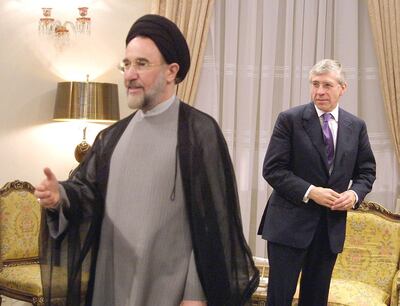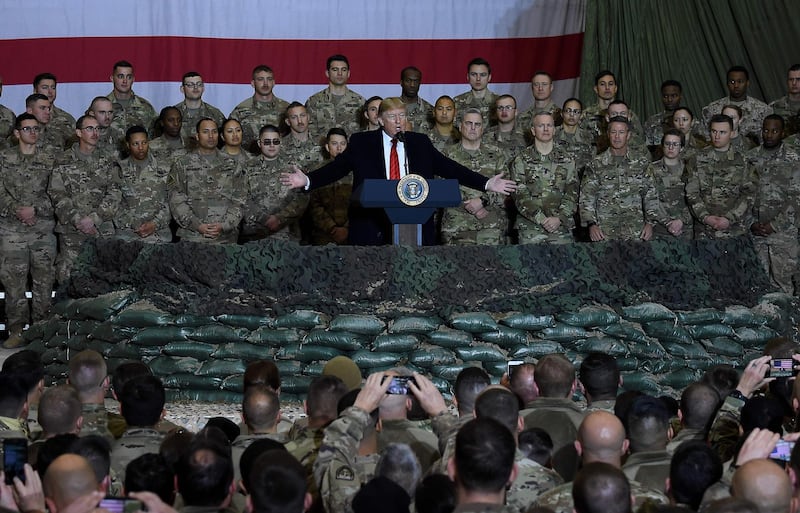It is safe to assume that Iran will react to the killing of Qassem Suleimani through violent but asymmetric means. An Iranian counter-strike might not come immediately but Tehran is sure to mobilise its various proxies and identify ways to inflict pain on the US. While the first reaction is likely to be in Iraq or elsewhere in the region, among the possible venues for a counter-strike could be Afghanistan.
Afghanistan has not been a significant playground in the escalating US-Iran confrontation. Tehran largely supported the US overthrow of the Taliban regime and, notwithstanding the fact that then president George W Bush put Iran in the "Axis of Evil", Tehran has seen its interests in Afghanistan as largely coincident with Washington’s, even as it formally opposed the US troop presence. Iran has generally supported the Kabul regime; its recently-developed relationship with the Taliban is probably a hedging strategy for a US drawdown.
More significantly, the Iranian port of Chabahar has emerged as a significant entrepot for landlocked Afghanistan. The US has tacitly accepted the development of this supply line as an alternative to Pakistan and a way for India to develop commercial links with Afghanistan.
For these reasons, the Afghan government has tried to straddle the US-Iran divide, rather than choose sides. Consistent with this approach, President Ashraf Ghani tweeted after the strike: “The Islamic Republic of Afghanistan is gravely concerned about a possible increase in violence in the region. In my telephone conversation with the US secretary of state, I once again emphasised that Afghan soil must not be used against a third country or in regional conflicts.”
Mr Ghani has good reason to stay out of the US-Iran confrontation, since Iran has a readily-available Afghan proxy, the Fatemiyoun Brigade. Drawn from the large Afghan refugee population in Iran, as many as 50,000 of them, primarily from the Shiite Hazara minority community, have served since the force's establishment in 2013. It falls under the Islamic Revolutionary Guard Corps – the force of which Suleimani's Quds Force was also an element – which deployed the brigade in Syria. But it could easily shift its operations to Afghanistan. With 12,000 US troops, a significant diplomatic presence and unofficial community of Americans, Afghanistan does not lack targets.
But the longer-term questions of Afghanistan’s role in this fight will be determined as much in Washington as in Kabul or Tehran. Should the US, as seems likely, wind up in prolonged low-intensity conflict with Iran, the American perception of Afghanistan’s utility might well change. The Donald Trump administration has sought a political settlement to the Afghan conflict and, like its predecessor, has had the ultimate objective of drawing down US forces. While the diplomacy has been characterised by fits and starts, the administration still seems to seek an end to the Afghan war that involves negotiating with the Taliban – provided an acceptable deal can be had.

Critics of the administration's approach have argued for an ongoing US counter-terrorism mission in Afghanistan and, in some quarters, for retaining US bases to counter China and Russia in Central Asia. These arguments, however, have not had much purchase with the administration. The US force in Afghanistan is at the end of rather long tether, with its aerial and terrestrial supply lines flowing through Pakistan, which has been at best ambivalent about the Afghan adventure. And a tiny toehold in Afghanistan does not seem a weighty counter to great power competition in inner Asia.
But the utility of the US presence in Afghanistan could increase if the US finds itself in prolonged conflict with Iran. The temptation of retaining Bagram Air Field – and the even greater temptation of Shindand Air Base, in western Afghanistan – might be too much for military planners and the US department of defence to resist.
Of course, there would be complications with such basing arrangements. First and foremost, the resupply of those bases has to take place through Pakistani air space, meaning that Pakistan needs to be on board for the confrontation with Iran – by no means a sure thing.
A decision to fight Iran from Afghanistan would also present a terrible dilemma for the Afghan government – forcing the country to choose between its powerful but distant patron, or its dangerous and vengeful neighbour. Moreover, a US decision to stay would almost certainly end any possibility of a negotiated settlement with the Taliban.
It is hard to see how using Afghanistan as a platform against Iran would not prolong that unfortunate country’s agony. A US war against Iran from Afghan territory would almost certainly trigger internal strife as various minorities and their militias, who have had decades-long relationships with the Iranian regime, react against their own government. And the Iranians have a readily-available Afghan militia. The foreign proxy war that has dominated Afghanistan for the past four decades would get a new lease on life.
Ambassador Richard Olson is a senior adviser at the US Institute of Peace. Prior to joining USIP, he served as US special representative for Afghanistan and Pakistan, US ambassador to Pakistan and US ambassador to the UAE





